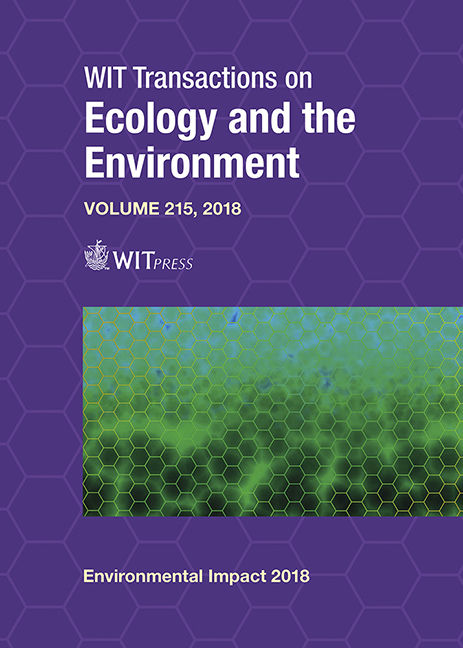LIFE CYCLE ANALYSIS FOR THE TREATMENT OF ORGANIC MATTER FROM MUNICIPAL SOLID WASTE: A CASE STUDY OF FRANCE
Price
Free (open access)
Transaction
Volume
215
Pages
12
Page Range
69 - 80
Published
2018
Paper DOI
10.2495/EID180071
Copyright
WIT Press
Author(s)
LINA PINTO DIAZ, PEGGY GUNKEL-GRILLON, ESTELLE ROTH
Abstract
Organic valorisation of wastes by composting, anaerobic digestion or anaerobic digestion followed by composting is considered as one of the recycling solutions. In this study a life cycle inventory was performed for home composting in order to assess environmental impact of diverting organic household waste from landfill and incineration in the context of French waste management because it is known that composting can lead to greenhouse gases, volatile organic compounds and heavy metals emissions. A life cycle analysis was computed with various home composting, incineration and landfill rates. Results show that diverting 100% of organic household waste to composting decreases global warming potential, eutrophication potential and marine aquatic ecotoxicity potential of 19.1%, 38.6 and 34.0%, respectively. The benefits in global warming potential and eutrophication are mainly due to the replacement of mineral fertilizers by compost. But human toxicity potential, terrestric ecotoxicity potential and freshwater aquatic ecotoxicity potential significantly increase by more than 1000%. This is mainly due to metal emission in agricultural soils during the compost use. However, the metal content of compost is still lower than the upper limit for compost label NF-44051.This study demonstrates for the first time that, under conditions assumed in life cycle analysis, home composting represents a reliable alternative to reduce environmental impacts of municipal waste produced in France.
Keywords
home composting, waste management, life cycle analysis, environmental impacts, organic household wastes





